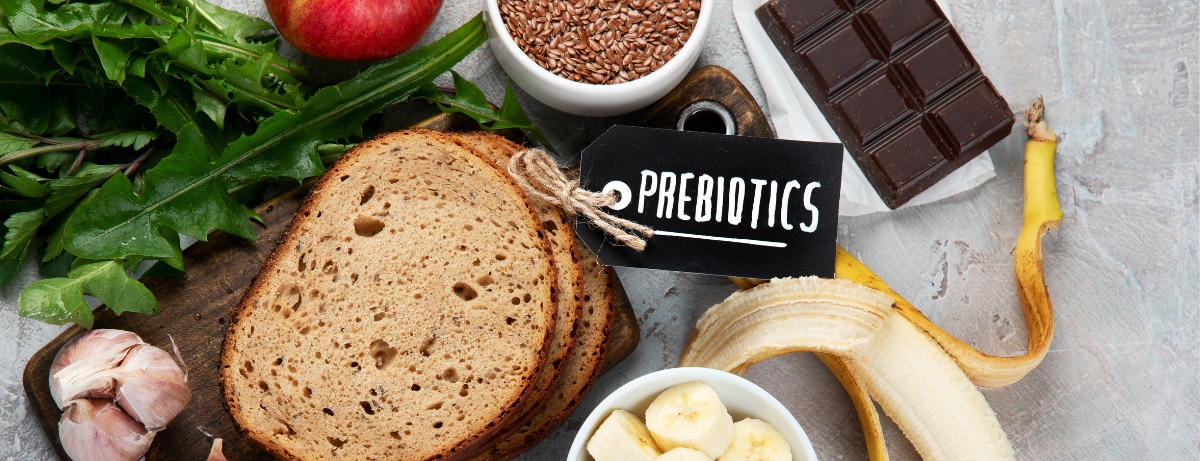15% off €30 or 20% off €40
Code:SHOP
8 of the best fermented foods and drinks for gut health

Fermented foods are proven to be great for your gut, but which ones should you be eating?
Summary
1What does fermented mean?
When we talk about fermentation in food, we’re talking about the use of microorganisms – like yeast or bacteria...
28 best fermented foods and drinks
While there aren't many scientific studies into exactly how fermented foods and fermented drinks affect our bodies...
31. Kefir
People make kefir by using starter grains called kefir grains, which contain live bacteria, such as lactic acid and yeast...
Taking care of your gut is still reigning supreme. We're finding out more things about how our gut affects the rest of our body all the time. And currently on our list is the benefits of fermented food.
What does fermented mean?
When we talk about fermentation in food, we’re talking about the use of microorganisms – like yeast or bacteria – to alter food and turn it into something delicious. Fermentation is the process used to turn sugar into wine, beer or cider, as well as to turn dough into bread.
Fermented foods are being recognised as being a source of good bacteria – or a probiotic – which have been found to contribute to the diversity of the gut microbiota.1

The 8 best fermented foods and drinks
While there aren't many scientific studies into exactly how fermented foods and fermented drinks affect our bodies, it's generally agreed that fermented foods could be considered an important part of any diet.2
If you want to introduce fermented food and drinks into your diet, it can be hard to know where to start. Luckily, we’re on hand to help.
1. Kefir
Kefir is a fermented dairy drink that in Turkish, is derived from the word ‘keif’ which means ‘good feeling’. It originated in the Caucasus Mountains and Tibet.3
People make kefir by using starter grains called kefir grains, which contain live bacteria, such as lactic acid and yeast. It also contains essential minerals, vitamins, amino acids and enzymes.3
Although it's not known exactly how kefir affects the body, early clinical studies have found that it could potentially aid gut function in adults.4
There's a vegan alternative to traditional dairy-based kefir (hoorah!) called water kefir. One 2021 study showed that while water kefir obviously lacks protein, it's still a good source of probiotics and prebiotics for people who don't eat dairy.5
2. Yoghurt
Yoghurt is one of the best and most well-known fermented foods. It’s made from milk that’s been fermented with live, friendly bacteria, namely bifidobacteria and lactic acid bacteria.
Introducing yoghurt into your diet is a good way to support your gut microbiome. A 2020 review found that three to four servings per day of certain dairy products, including yoghurt, were found to increase the amount of good bacteria in the gut.6 Regularly eating probiotic yoghurt is also shown to help reduce the occurrence of gastrointestinal infections, as well as reduce bloating and aid in gastric emptying.7,8
Make sure you’re buying the real deal though, and go for yoghurts with ‘live’ or ‘active’ cultures, as some yoghurts will have been pasteurised to kill the bacteria.
3. Cheese
Most cheese has been fermented but doesn’t always contain probiotics. This is because most of the cheese found in supermarkets will have been processed in a way that kills the live bacteria. Friendly bacteria can sometimes survive the ageing process in some cheese types, including mozzarella, gouda, parmesan, grana padano, blue cheese, cottage cheese and cheddar.1
While it’s not known exactly what the effects of eating cheese are on gut health, it's clear that these types of cheeses have positive effects on your gut microbiome.1 Cheese can be high in saturated fat and salt, so make sure you eat it in moderation.9
Make sure you always check the label for live and active cultures if you want some bacterial goodness along with the protein, vitamins and minerals cheese provides.
4. Tempeh
Tempeh is originally from Indonesia but has become popular all over the world because of its high protein content and ‘meaty’ nutty and earthy taste.10
It’s made by fermenting soybeans with a specific type of fungus, which creates its vitamin B12 content (that soybeans don’t naturally contain) and gives it its much-loved texture.10
In one study, eating tempeh was found to result in an overabundance of a particular type of gut bacteria that's found to be effective against both diabetes and obesity.11 However, this was a relatively small study of only 10 people, so more research is needed.
5. Miso
Miso is another fermented soybean product from Japan and is most popular for its use in miso soup.12
It’s traditionally produced by fermenting soybeans with a type of fungus called koji and salt, but it can also be made by mixing soybeans with rice, barley, and rye.
Miso is full of friendly live bacteria, as well as protein, fibre, vitamins, and minerals, including vitamin K and copper.13
Studies have shown that miso has been shown to reduce the severity of gastrointestinal problems, such as bloating, nausea after eating, stomach pain after eating, and belching.14
Miso is also vegan-friendly, but can be high in salt so it is important to make sure that you eat it in moderation.
6. Sauerkraut
You may have already experienced sauerkraut on your frankfurter sausage or Reuben sandwich, which provides a deliciously sour and salty flavour. Vegan-friendly sauerkraut has been enjoyed by many European countries for centuries and is made by fermenting finely shredded cabbage with lactic acid bacteria.15
Sauerkraut is one of the few fermented foods where there are clinical studies taking place. One such study from 2018 found that eating unpasteurised sauerkraut as a supplement for 6 weeks made the symptoms of IBS patients less severe.16
If you're thinking of eating more sauerkraut to help with gut health, make sure you choose an unpasteurised sauerkraut, as pasteurisation kills any live bacteria.
7. Kimchi
Similar to sauerkraut, kimchi is another fermented vegetable dish (usually cabbage), but with a lot more seasoning.
It’s made by fermenting cabbage or other vegetables with Lactobacillus kimchi and other lactic acid bacteria and then adding seasonings like red chilli pepper flakes, ginger, garlic, spring onion and salt.17
There have been a few studies into kimchi’s effects on the gut. There's some preliminary evidence that kimchi may have an impact on the gut microbiota composition, but sadly no evidence exists to date on the impact of kimchi on gastrointestinal health and disease.14
8. Kombucha
Kombucha is one of the larger health food trends of the 21st century, despite having originally originated in Northeast China in about 220 BC and consumed extensively during the Qin Dynasty.18
However, despite a handful of studies, the effects of kombucha on humans remain largely unknown. There have also been no scientific studies that show that kombucha is good for gut health.14
Kombucha is made by fermenting black or green tea with bacteria and yeast. While traditional kombucha can be an acquired taste, you can get variations of kombucha where it's flavoured with fruits such as raspberry or lemon to make it more palatable. However, just be sure to check the label and see if it's pasteurised or not.
The final say
Fermented foods aren't going anywhere anytime soon. If anything, they'll probably just keep becoming more popular as there's choices for all diets. Plus, they can add a tasty boost to your everyday dishes. There's so much more to keep learning about the gut, like how to keep your gut healthy and how probiotics can support your gut.
The advice in this article is for information only and should not replace medical care. Please check with your GP or healthcare professional before trying any supplements, treatments or remedies. Food supplements must not be used as a substitute for a varied and balanced diet and a healthy lifestyle.
1. NHS Choices. Probiotics [Internet]. 2023 [cited 2023 Dec 14]. Available from: https://www.nhs.uk/conditions/probiotics/
2. Leeuwendaal NK, Stanton C, O’Toole PW, Beresford TP. Fermented foods, health and the gut microbiome. Nutrients. 2022. Available at: https://www.mdpi.com/2072-6643/14/7/1527
3. Damiana Diniz Rosa, Maciel M, Łukasz Grześkowiak, Aparecida S, Lopes L, Maria. Milk kefir: nutritional, microbiological and health benefits. Nutrition Research Reviews [Internet]. 2017 Feb 22 [cited 2023 Dec 14];30(1):82–96. Available from: https://pubmed.ncbi.nlm.nih.gov/28222814/
4. Wang MC, Zaydi AI, Lin WH, Lin JS, Liong MT, Wu JJ. Putative probiotic strains isolated from kefir improve gastrointestinal health parameters in adults: a randomized, single-blind, placebo-controlled study. Probiotics and antimicrobial proteins. 2020. Available at: https://link.springer.com/article/10.1007/s12602-019-09615-9
5. Guzel-Seydim ZB, Gökırmaklı Ç, Greene AK. A comparison of milk kefir and water kefir: Physical, chemical, microbiological and functional properties. Trends in Food Science & Technology. 2021. Available at: https://www.sciencedirect.com/science/article/abs/pii/S0924224421003010
6. Aslam H, Marx W, Rocks T, Loughman A, Chandrasekaran V, Ruusunen A, Dawson SL, West M, Mullarkey E, Pasco JA, Jacka FN. The effects of dairy and dairy derivatives on the gut microbiota: A systematic literature review. Gut microbes. 2020. Available at: https://www.tandfonline.com/doi/full/10.1080/19490976.2020.1799533
7. Meybodi NM, Mortazavian AM, Arab M, Nematollahi A. Probiotic viability in yoghurt: A review of influential factors. International Dairy Journal. 2020. Available at: https://www.sciencedirect.com/science/article/abs/pii/S0958694620301631
8. Guyonnet D, Chassany O, Ducrotte P, Picard C, Mouret M, Mercier CH, Matuchansky C. Effect of a fermented milk containing Bifidobacterium animalis DN-173 010 on the health-related quality of life and symptoms in irritable bowel syndrome in adults in primary care: a multicentre, randomized, double-blind, controlled trial. Aliment Pharmacol Ther. 2007. Available at: https://pubmed.ncbi.nlm.nih.gov/17635382/
9. NHS Choices. Dairy and alternatives in your diet [Internet]. 2024 [cited 2024 Feb 2]. Available from: https://www.nhs.uk/live-well/eat-well/food-types/milk-and-dairy-nutrition/
10. Amadeus Driando Ahnan-Winarno, Cordeiro L, F.G. Winarno, Gibbons JG, Xiao H. Tempeh: A semicentennial review on its health benefits, fermentation, safety, processing, sustainability, and affordability. Comprehensive Reviews in Food Science and Food Safety [Internet]. 2021 Feb 10 [cited 2023 Dec 14];20(2):1717–67. Available from: https://pubmed.ncbi.nlm.nih.gov/33569911/
11. STEPHANIE S, RATIH NK, SOKA S, SUWANTO A. Effect of tempeh supplementation on the profiles of human intestinal immune system and gut microbiota. Microbiology Indonesia. 2017. Available at: https://pdfs.semanticscholar.org/0395/80ddeb7242ca4e5575164a48e621e1c4921d.pdf
12. Allwood JG, Wakeling L, Bean DC. Fermentation and the microbial community of Japanese koji and miso: A review. Journal of Food Science [Internet]. 2021 May 30 [cited 2023 Dec 14];86(6):2194–207. Available from: https://pubmed.ncbi.nlm.nih.gov/34056716/
13. Katsuyoshi Nishinari, Fang Y, Nagano T, Guo S, Wang R. Soy as a food ingredient. Elsevier eBooks [Internet]. 2018 Jan 1 [cited 2023 Dec 14];149–86. Available from: https://www.sciencedirect.com/topics/food-science/miso
14. Makenna B. Lenover, Mary K. Shenk, Evolutionary medicine approaches to chronic disease: The case of irritable bowel syndrome, Evolutionary Anthropology: Issues, News, and Reviews. 2023. Available at: https://onlinelibrary.wiley.com/doi/full/10.1111/jgh.15728
15. Canning of juices, fruit drinks, and water. Elsevier eBooks [Internet]. 2016 Jan 1 [cited 2023 Dec 14];135–68. Available from: https://www.sciencedirect.com/topics/food-science/sauerkraut
16. Nielsen ES, Garnås E, Jensen KJ, Hansen LH, Olsen PS, Ritz C, Krych L, Nielsen DS. Lacto-fermented sauerkraut improves symptoms in IBS patients independent of product pasteurisation–a pilot study. Food & function. 2018. Available at: https://pubs.rsc.org/en/content/articlelanding/2018/fo/c8fo00968f/unauth
17. Noh BS, Seo H, Park WS, Oh S. Safety of Kimchi. Elsevier eBooks [Internet]. 2016 Jan 1 [cited 2023 Dec 14]; Available from: https://www.sciencedirect.com/topics/agricultural-and-biological-sciences/kimchi
18. Vīna I, Semjonovs P, Linde R, Deniņa I. Current evidence on physiological activity and expected health effects of kombucha fermented beverage. Journal of medicinal food. 2014. Available at: https://www.liebertpub.com/doi/abs/10.1089/jmf.2013.0031




